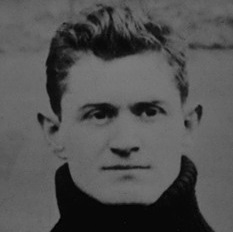
J. Ray Morrison was an American football and baseball player and a coach of football, basketball, and baseball. He served as the head football coach at Southern Methodist University, Vanderbilt University, Temple University (1940–1948), and Austin College (1949–1952), compiling a career college football record of 155–130–33. He was inducted into the College Football Hall of Fame as a coach in 1954.
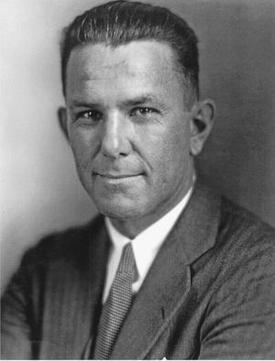
Lewis Woolford Hardage was an American college football player and college football and baseball coach.

The 1904 Vanderbilt Commodores football team represented Vanderbilt University during the 1904 Southern Intercollegiate Athletic Association football season. The team's head coach was Dan McGugin, who served his first season in that capacity. Members of the Southern Intercollegiate Athletic Association, the Commodores played six home games in Nashville, Tennessee and finished the season with a record of 9–0.

The 1915 Vanderbilt Commodores football team represented Vanderbilt University during the 1915 Southern Intercollegiate Athletic Association football season. Dan McGugin served his 12th season as the Commodores' head coach. Vanderbilt was a member of the SIAA. They faced a 10-game schedule. Vanderbilt scored 459 points in its first seven shutout games, and 514 points in 510 minutes of actual playing time by season's end, making it a legitimate "point-a-minute team" leading the nation in scoring with a school record still unequaled today.

The 1922 Vanderbilt Commodores football team represented Vanderbilt University during the 1922 Southern Conference football season. During the season, Dan McGugin's 18th as head coach, Vanderbilt compiled a record of 8–0–1 and outscored its opponents 177 to 16. The Commodores' defense was unrivaled in the South, leading the nation in giving up just 1.8 points per game, none of them at home. The season included a tie with Michigan at the dedication of the new Dudley Field; the first stadium in the South to be used exclusively for college football. The season was immediately dubbed one of the best in Vanderbilt and Southern football history.
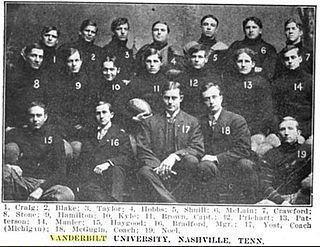
The 1905 Vanderbilt Commodores football team represented Vanderbilt University during the 1905 Southern Intercollegiate Athletic Association football season. The team's head coach was Dan McGugin, who served his second season in that capacity. Members of the Southern Intercollegiate Athletic Association, the Commodores played six home games in Nashville, Tennessee and finished the season with a record 7–1 overall and 6–0 in SIAA, outscoring their opponents 372–22. Vanderbilt played seven home games and won them all including six shutout victories.

The 1906 Vanderbilt Commodores football team represented Vanderbilt University during the 1906 Southern Intercollegiate Athletic Association football season. The team's head coach was Dan McGugin, who served his third season in that capacity. Members of the Southern Intercollegiate Athletic Association (SIAA), the Commodores played seven home games in Nashville, Tennessee at Curry Field, and finished the season with a record of 8–1 overall and 5–0 in SIAA.
The 1907 Vanderbilt Commodores football team represented Vanderbilt University during the 1907 Southern Intercollegiate Athletic Association football season. The team's head coach was Dan McGugin, who served his fourth season in that capacity. Members of the Southern Intercollegiate Athletic Association, the Commodores played five home games in Nashville, Tennessee and finished the season with a record 5–1–1 and 3–0 in SIAA.

The 1921 Vanderbilt Commodores football team was an American football team representing Vanderbilt University during the 1921 Southern Intercollegiate Athletic Association football season. It was Dan McGugin's 17th season as head coach, and Wallace Wade's first season as assistant coach. Vanderbilt outscored its opponents 161–21 for a record of 7–0–1 and a share of the Southern Intercollegiate Athletic Association (SIAA) championship. The team's leading scorer was halfback Rupert Smith and its captain was "Pink" Wade, father of future Vanderbilt star Bill Wade. The Commodores played their home games at Dudley Field.

The 1923 Vanderbilt Commodores football team represented Vanderbilt University in the sport of college football during the 1923 Southern Conference football season. The team's head coach was Dan McGugin, who served his 19th year in that capacity. The Commodores played six home games at Dudley Field in Nashville, Tennessee. Vanderbilt finished the season with a record of 5–2–1 overall and 3–0–1 in SoCon play, outscoring opponents 137–33. The team suffered its losses to the national champion Michigan Wolverines and the undefeated Texas Longhorns.
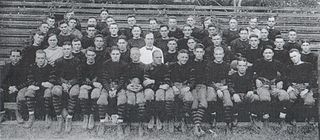
The 1920 Vanderbilt Commodores football team represented Vanderbilt University during the 1920 college football season. The team's head coach was Dan McGugin, who served his 16th season in that capacity. Members of the Southern Intercollegiate Athletic Association (SIAA), the Commodores played five home games in Nashville, Tennessee, and finished the season with a record 4–3–1 and 3–3 in the SIAA. The Commodores outscored their opponents, 134–124.

The 1924 Vanderbilt Commodores football team represented Vanderbilt University in the 1924 Southern Conference football season. The 1924 season was Dan McGugin's 20th year as head coach. Members of the Southern Conference, the Commodores played six home games in Nashville, Tennessee, at Dudley Field and finished the season with a record of 6–3–1. Vanderbilt outscored its opponents 150–53. Fred Russell's Fifty Years of Vanderbilt Football dubs it "the most eventful season in the history of Vanderbilt football."
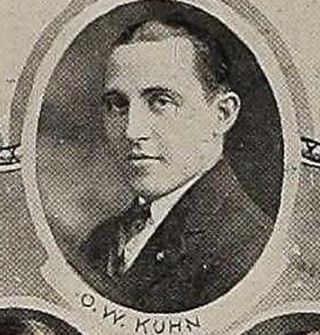
Oliver Wall Kuhn, nicknamed "Doc Kuhn", was an American football, baseball and basketball player for the Vanderbilt University Commodores and later a prominent businessman of Tampa, Florida. As a college football quarterback, Kuhn led Vanderbilt to three consecutive Southern titles in 1921, 1922, and 1923 – the most-recent conference titles for Vanderbilt football. In 1922, Vanderbilt tied Michigan at the dedication of Dudley Field, and Kuhn was picked for Walter Camp's list of names worthy of mention and Billy Evans' All-America "National Honor Roll."
The 1910 Vanderbilt Commodores football team represented Vanderbilt University in the sport of American football during 1910 college football season. In Dan McGugin's 7th year as head coach, the Commodores as members of the Southern Intercollegiate Athletic Association (SIAA) compiled an 8–0–1 record and outscored their opponents 165 to 8, winning a conference championship.
The 1911 Vanderbilt Commodores football team represented Vanderbilt University in the 1911 college football season. It was Dan McGugin's 8th year as head coach. The team outscored its opponents 259 to 9, winning an undisputed Southern Intercollegiate Athletic Association (SIAA) title.

The 1912 Vanderbilt Commodores football team represented Vanderbilt University in the 1912 college football season. The 1912 season was Dan McGugin's ninth year as head coach. Members of the Southern Intercollegiate Athletic Association (SIAA), the Commodores won their third straight conference title this year, posting an 8–1–1 win–loss–tie record. The team played its home games at Dudley Field. It used the short punt formation as its offensive scheme.
The 1916 Vanderbilt Commodores football team represented Vanderbilt University in the 1916 Southern Intercollegiate Athletic Association football season. The 1916 season was Dan McGugin's 13th year as head coach. Quarterback Irby Curry was selected third-team All-America by Walter Camp.
The 1919 Vanderbilt Commodores football team represented Vanderbilt University in the 1919 college football season. The 1919 season was Dan McGugin's 15th year as head coach. McGugin was returning from his stent in the Army during World War I where he was relieved by interim head coach Ray Morrison. Josh Cody was selected third-team All-America by Walter Camp, for the second time.
The 1927 Vanderbilt Commodores football team represented Vanderbilt University in the 1927 Southern Conference football season. The 1927 season was Dan McGugin's 23rd year as head coach. Running back Jimmy Armistead led the nation in scoring in 1927 with 138 points. The team's quarterback was Bill Spears. One fellow wrote Vanderbilt produced "almost certainly the legit top Heisman candidate in Spears, if there had been a Heisman Trophy to award in 1927."

The Georgia Tech–Vanderbilt football rivalry is an American college football rivalry between the Georgia Tech Yellow Jackets and Vanderbilt Commodores. Both universities are founding members of the Southeastern Conference (SEC) and Southern Conference (SoCon), and Southern Intercollegiate Athletic Association (SIAA). Georgia Tech leads the series all time 20–15–3.














